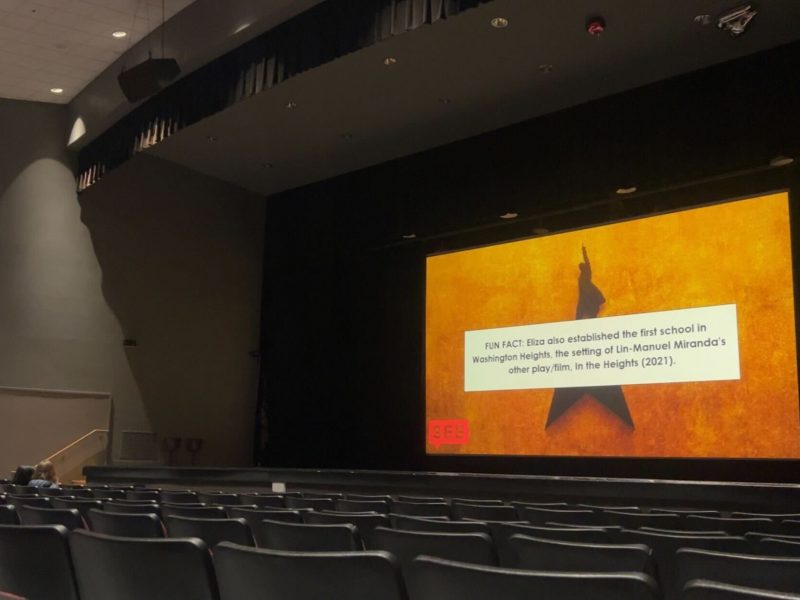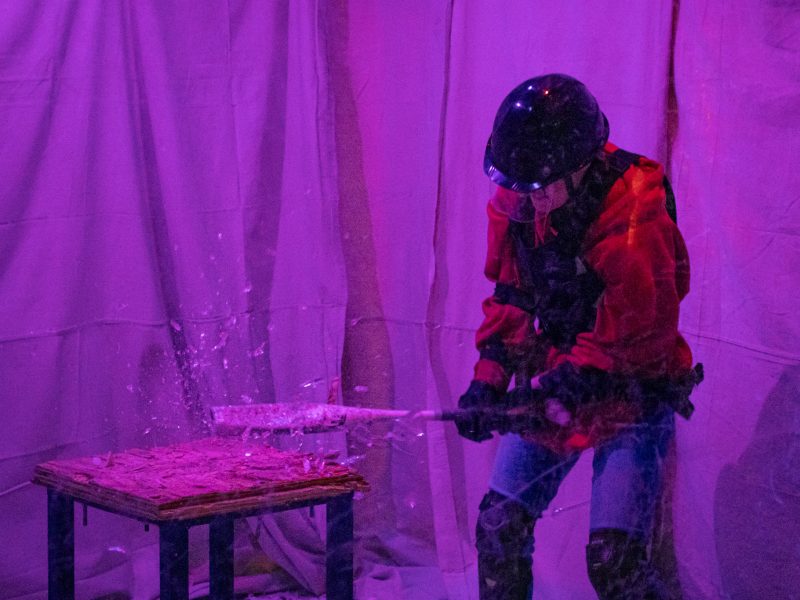By Molly Williams
For The Diamondback
It’s said that college is a place for young people to discover themselves. Last week’s University of Maryland theatre, dance and performance studies school Experimental Performance Series gave dance students the opportunity to do just that through a series of intimate and personal choreographies.
In what was the third event of this five-part production, three undergraduate and graduate dance students performed their original work on stage. The works featured themes unique to each performer’s personal experiences, such as self-reflection and identity.
“This program is a little bit more intimate in that the performance is produced by the students,” said Crystal Davis, head of this university's MFA dance program.

Davis described this series as a “long game.”
“Particularly with the graduate students, a lot of times if you come to the Experimental Performance Series, you get to see who they are as an artist,” Davis said. “You come back and watch them in their thesis performance, and you kind of get to see the forming process of how this choreographer works.”
Carlo Antonio Villanueva was one of the students to show his work. As a dance graduate student preparing to graduate next spring, he finds that seeing his work on stage helps it reach maturity.
“The more that I can prepare my work for the stage, the more my ideas are actually moving, right? Because otherwise, all the choreography that I’m doing is going to be happening just in my head, or just in a rehearsal studio,” Villanueva said.

Villanueva’s piece was an adaptation of a dance that he did about five years ago. As the only cast member from the original piece, he took the opportunity to bring the choreography to life in a new way.
“I think that the dance doesn’t really look anything like it used to five years ago, but I think that’s really exciting,” Villanueva said.
Villanueva’s quartet danced to the sound of crickets chirping. This number, too, grew in intensity as the performance went on, ending with dynamic movement against a daunting soundscape.
Villanueva explained that his hope in bringing this piece to the stage was to leave the audience with something to discuss with each other.
“I hope they can keep talking about it and not just see it and walk away and never think about it again,” Villanueva said.
[‘Schreber is a Woman’ video installation brings life to queer history]
Christina Robson, a dance graduate student, was the second performer. Her solo piece was set to a whimsical tune, and Robson mirrored the music that accompanied her, meeting the staccato notes with sharp movements.
This piece took on a slightly different meaning in terms of student-run production as the audience saw a dance that was not only created by the student, but solely for the performer to showcase a specific skill set.
Greta Cover, another headliner, used her piece to explore not only her creative style, but different versions of herself. Her piece was titled “Efflorescence,” a word which means “blooming and becoming like a flower.”
“I have handheld mirrors, and that’s kind of the symbolizing of looking at yourself now, like the present self, and being like, ‘Oh, this is who I am now,’” the junior dance and marketing major said.

As the only undergraduate to present a piece, Cover was able to find a new type of confidence in producing her own work. While in the past she has been hesitant to set high expectations for her performances, working on her piece sparked more of the very thing that inspired it: self-discovery.
“That’s probably been one of my biggest takeaways, just to take more ownership and be more confident and proud of my own ideas and what I’m designing,” Cover said.
Similar to Villanueva, Cover hoped her piece’s message would stick with the audience and that people watching would make time to examine different parts of themselves.
[Local band Rex Pax will return to live music at Pie Shop on Sunday]

All three pieces captured the spirit and purpose of the dance series — to give students an opportunity to have full control over their creative processes.
“Leadership and agency” are the most valuable things the students who participate in this series can learn, according to Davis.
The Experimental Performance Series fosters these skills for budding artists, creating a space where they can become more confident in their creativity while presenting their work to an audience.











